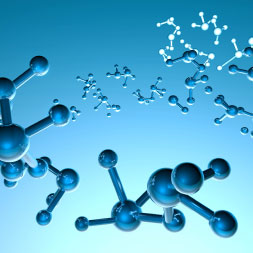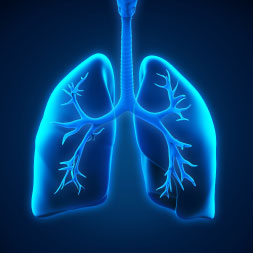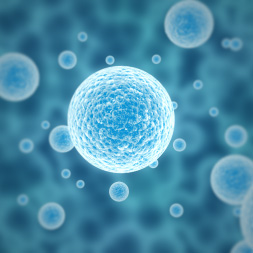Online courses directory (423)
Lectures, reading, and discussion of current theory and data concerning the psychology and biology of language acquisition. Emphasizes learning of syntax and morphology, together with some discussion of phonology, and especially research relating grammatical theory and learnability theory to empirical studies of children.
Learn to differentiate between DNA and RNA and between mitosis and meiosis through Education Portal's chapter on basic genetics. Our team of professional educators, who have experience in biology, designed the video lessons in this chapter to be brief and easy to follow. You'll get an overview of genetics before exploring more complex topics, like DNA mutation and comparative genomics. Other topics covered in this chapter include cloning and genetic modification. To be sure you've mastered the material covered in each video lesson, you can take the accompanying self-assessment quiz. Biology 102: Basic Genetics can help you prepare for the Excelsior College Basic Genetics exam ; passing this exam can earn you actual college credit.
Introduction to Solid State Chemistry is a first-year single-semester college course on the principles of chemistry. This unique and popular course satisfies MIT's general chemistry degree requirement, with an emphasis on solid-state materials and their application to engineering systems.
Course Format
 This course has been designed for independent study. It provides everything you will need to understand the concepts covered in the course. The materials include:
This course has been designed for independent study. It provides everything you will need to understand the concepts covered in the course. The materials include:
- A complete set of Lecture Videos by Prof. Sadoway.
- Detailed Course Notes for most video sessions, plus readings in several suggested textbooks.
- Homework problems with solution keys, to further develop your understanding.
- For Further Study collections of links to supplemental online content.
- Self-Assessment pages containing quiz and exam problems to assess your mastery, and Help Session Videos in which teaching assistants take you step-by-step through exam problem solutions.
About OCW Scholar
OCW Scholar courses are designed specifically for OCW’s single largest audience: independent learners. These courses are substantially more complete than typical OCW courses, and include new custom-created content as well as materials repurposed from previously published courses. Learn more about OCW Scholar.
Numerical methods for solving problems arising in heat and mass transfer, fluid mechanics, chemical reaction engineering, and molecular simulation. Topics: numerical linear algebra, solution of nonlinear algebraic equations and ordinary differential equations, solution of partial differential equations (e.g. Navier-Stokes), numerical methods in molecular simulation (dynamics, geometry optimization). All methods are presented within the context of chemical engineering problems. Familiarity with structured programming is assumed. The examples will use MATLAB®.
Acknowledgements
The instructor would like to thank Robert Ashcraft, Sandeep Sharma, David Weingeist, and Nikolay Zaborenko for their work in preparing materials for this course site.
This course is an introduction to computational theories of human cognition. Drawing on formal models from classic and contemporary artificial intelligence, students will explore fundamental issues in human knowledge representation, inductive learning and reasoning. What are the forms that our knowledge of the world takes? What are the inductive principles that allow us to acquire new knowledge from the interaction of prior knowledge with observed data? What kinds of data must be available to human learners, and what kinds of innate knowledge (if any) must they have?
A molecule is a group of two or more atoms that bind together using chemical bonds. They may be from one or multiple elements and it is the ratio, or mass composition, of each molecule that gives the molecular compound its chemical characteristics. In this free online science course, you will learn about molecules and how they are composed of various elements, in mass, atoms and ratios. The course introduces the student to Avogadro’s number or the Mole, which is used to convert between atomic mass and grams, so that you will be able to work out ratios and weights of molecules. You will also learn how to balance chemical equations, and by balancing the reactants within equations, get viable chemical reactions. This branch of chemistry is known as Stoichiometry. The course will be of great interest to all students who wish to pursue a career in any of the sciences such as chemistry, physics, biology or geology, or the individual learner who simply wants to learn and understand how atoms form the molecules which make up all the material surrounding us. <br />
Cellular respiration is a key concept to understand in biology as it involves obtaining energy from the nutrients organisms eat and the removal of waste products. It is a key biological process which is vital to all life forms, including humans. In this free online biology course you will learn about the chemical makeup of the energy that is stored, generally referred to as adenosine triphosphate (ATP), how this molecule works and how it is used in the respiratory process. You will also learn about glucose as it is the main source of energy, and the stages involved in cellular respiration from glycolysis through the Kerb’s cycle to the electron transport chain. You will learn how molecules are split to release energy through oxidization to produce ATP and waste products in the form of water and carbon dioxide. This free online biology course will be of great interest to all students who wish to pursue a career in sciences such as biology, biochemistry, medicine, pharmacy or the individual learner who simply wants to learn more about how we convert our food into energy.<br />
An advanced seminar on issues of current interest in human and machine vision. Topics vary from year to year. This year, the class will involve studying the perception of materials. Participants discuss current literature as well as their ongoing research. Topics are tackled from multiple standpoints, including optics, psychophysics, computer graphics and computer vision.
This course provides an introduction to important philosophical questions about the mind, specifically those that are intimately connected with contemporary psychology and neuroscience. Are our concepts innate, or are they acquired by experience? (And what does it even mean to call a concept 'innate'?) Are 'mental images' pictures in the head? Is color in the mind or in the world? Is the mind nothing more than the brain? Can there be a science of consciousness? The course will include guest lectures by Professors.
Survey and special topics designed for students in Brain and Cognitive Sciences. Emphasizes ethological studies of natural behavior patterns and their analysis in laboratory work, with contributions from field biology (mammology, primatology), sociobiology, and comparative psychology. Stresses human behavior but also includes major contributions from studies of other animals.
This course is designed to introduce you to the study of Calculus. You will learn concrete applications of how calculus is used and, more importantly, why it works. Calculus is not a new discipline; it has been around since the days of Archimedes. However, Isaac Newton and Gottfried Leibniz, two 17th-century European mathematicians concurrently working on the same intellectual discovery hundreds of miles apart, were responsible for developing the field as we know it today. This brings us to our first question, what is today's Calculus? In its simplest terms, calculus is the study of functions, rates of change, and continuity. While you may have cultivated a basic understanding of functions in previous math courses, in this course you will come to a more advanced understanding of their complexity, learning to take a closer look at their behaviors and nuances. In this course, we will address three major topics: limits, derivatives, and integrals, as well as study their respective foundations and a…
DISCLAIMER: This course is designed to address the fundamentals of clinical psychology. It will NOT provide the education or experience needed for the diagnosing and treating of mental disorders. This course will cover the basic concepts of clinical psychology, or the study of diagnosing, treating, and understanding abnormal and maladaptive behaviors. We frequently refer to these behaviorswhich include depression, anxiety, and schizophreniaas mental diseases or disorders. While you might have a general understanding of these disorders, this course will cover each in great detail. Many of you are likely familiar with the idea of therapy, whether because you or someone you know has been in therapy, or because you have seen it in popular TV shows or movies. Because many approaches to therapy draw from research on clinical populationsthat is, populations suffering from some sort of mental disordertherapy is closely related to the field of psychopathology. Although this class will not teach you how to cond…
This course is an intensive introduction to the techniques of experimental chemistry and gives first year students an opportunity to learn and master the basic chemistry lab techniques for carrying out experiments. Students who successfully complete the course and obtain a "Competent Chemist" (CC) or "Expert Experimentalist" (EE) rating are likely to secure opportunities for research work in a chemistry lab at MIT.
Acknowledgements
The laboratory manual and materials for this course were prepared by Dr. Katherine J. Franz and Dr. Kevin M. Shea with the assistance of Professors Rick L. Danheiser and Timothy M. Swager. Materials have been revised by Dr. J. Haseltine, Dr. Kevin M. Shea, Dr. Sarah A. Tabacco, Dr. Kimberly L. Berkowski, Anne M. (Gorham) Rachupka, and Dr. John J. Dolhun.
WARNING NOTICE
The experiments described in these materials are potentially hazardous and require a high level of safety training, special facilities and equipment, and supervision by appropriate individuals. You bear the sole responsibility, liability, and risk for the implementation of such safety procedures and measures. MIT shall have no responsibility, liability, or risk for the content or implementation of any of the material presented.
Legal Notice
Cell physiology is the branch of science that studies the structure and function of individual cells. Our increasing knowledge and understanding of cellular mechanisms and processes have led to great advances in all areas of biology and medicine. In this free online physiology course you will be introduced to the main topics in cell physiology such as the major components of a typical animal cell. You will learn about the mechanisms behind cell growth and multiplication, about the movement of substances into and out of cells, how energy is processed within the cell, and how and why cells maintain an electrical charge across their membranes called membrane potentials. This free online cell physiology course will be of great interest to all healthcare professionals who would like to learn more about the structure and function of cells, and to all students of biology and medicine who would like a greater knowledge and understanding of the mechanisms and processes involved in cell physiology.<br />
This course examines the neural bases of sensory perception. The focus is on physiological and anatomical studies of the mammalian nervous system as well as behavioral studies of animals and humans. Topics include visual pattern, color and depth perception, auditory responses and sound localization, and somatosensory perception.
The physics of the universe appears to be dominated by the effects of four fundamental forces: gravity, electromagnetism, weak nuclear forces, and strong nuclear forces. These forces control how matter, energy, space, and time interact to produce our physical world. All other forces, such as the force you exert in standing up, are ultimately derived from these fundamental forces. We have direct daily experience with two of these forces: gravity and electromagnetism. Consider, for example, the everyday sight of a person sitting on a chair. The force holding the person on the chair is gravitational, and that gravitational force balances with material forces that “push up” to keep the individual in place. These forces are the direct result of electromagnetic forces on the nanoscale. On a larger stage, gravity holds the celestial bodies in their orbits, while we see the universe by the electromagnetic radiation (light, for example) with which it is filled. The electromagnetic force also makes…
5.451 is a half-semester introduction to natural product biosynthetic pathways. The course covers the assembly of complex polyketide, peptide, terpene and alkaloid structures. Discussion topics include chemical and biochemical strategies used to elucidate natural product pathways.
The goal of this course is to teach both the fundamentals of nuclear cell biology as well as the methodological and experimental approaches upon which they are based. Lectures and class discussions will cover the background and fundamental findings in a particular area of nuclear cell biology. The assigned readings will provide concrete examples of the experimental approaches and logic used to establish these findings. Some examples of topics include genome and systems biology, transcription, and gene expression.
Provides a comprehensive introduction to key issues and findings in object recognition in experimental, neural, computational, and applied domains. Emphasizes the problem of representation, exploring the issue of how 3-D objects should be encoded so as to efficiently recognize them from 2-D images. Second half focuses on face recognition, an ecologically important instance of the general object recognition problem. Describes experimental studies of human face recognition performance and recent attempts to mimic this ability in artificial computational systems.
The course, which spans two thirds of a semester, provides students with a research-inspired laboratory experience that introduces standard biochemical techniques in the context of investigating a current and exciting research topic, acquired resistance to the cancer drug Gleevec. Techniques include protein expression, purification, and gel analysis, PCR, site-directed mutagenesis, kinase activity assays, and protein structure viewing.
This class is part of the new laboratory curriculum in the MIT Department of Chemistry. Undergraduate Research-Inspired Experimental Chemistry Alternatives (URIECA) introduces students to cutting edge research topics in a modular format.
Acknowledgments
Development of this course was funded through an HHMI Professors grant to Professor Catherine L. Drennan.
Trusted paper writing service WriteMyPaper.Today will write the papers of any difficulty.



















